13 arrested as Easter Sunday attacks kills 290 in Sri Lanka
There was still no claim of responsibility for the attacks on two churches and four hotels in and around Colombo
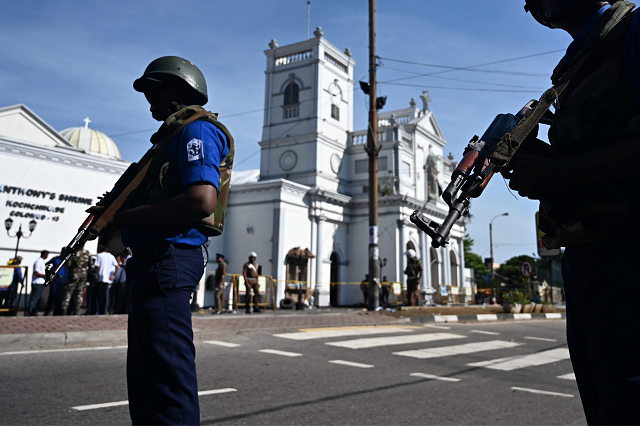
Security personnel stand guard outside St. Anthony's Shrine in Colombo. PHOTO: AFP
Authorities have not made public details on those held after Sunday's attacks. But a police source told AFP the 13 were detained at two locations in and around Colombo.
The source said the 13 men are from the same radical group.
At least two of the eight attacks were carried out by suicide bombers, according to police and other sources, and three police were killed when another suicide bomber detonated explosives during a raid on a house where suspects were.
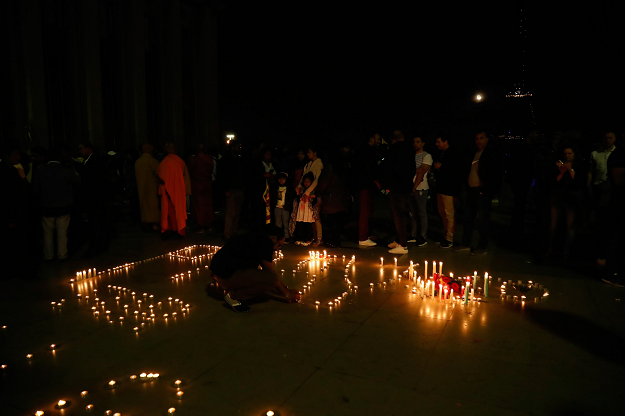 People lit candles on the Trocadero where they watch The Eiffel tower going dark at midnight in Paris, as an homage to the victims of Sri Lanka bombings. PHOTO: AFP
People lit candles on the Trocadero where they watch The Eiffel tower going dark at midnight in Paris, as an homage to the victims of Sri Lanka bombings. PHOTO: AFPAuthorities lifted a curfew in Sri Lanka on Monday, a day after 290 people were killed and about 500 wounded by a string of bombings that tore through churches and luxury hotels on Easter Sunday.
There was still no claim of responsibility for the attacks on two churches and four hotels in and around Colombo, the capital of predominantly Buddhist Sri Lanka, and a third church on the country’s northeast coast.
A government source said President Maithripala Sirisena, who was abroad when the attacks happened, had called a meeting of the National Security Council early on Monday. Prime Minister Ranil Wickremesinghe would attend the meeting, the source said.
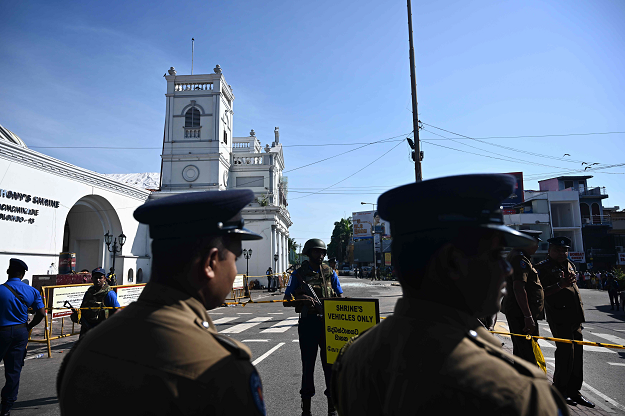 PHOTO: AFP
PHOTO: AFPThere were fears the attacks could spark a renewal of communal violence, with police reporting late on Sunday there had been a petrol bomb attack on a mosque in the northwest and arson attacks on two shops owned by Muslims in the west.
Sri Lanka had been at war for decades with Tamil separatists but extremist violence had been on the wane since the civil war ended 10 years ago.
The South Asian nation of about 22 million people has Christian, Muslim and Hindu populations of between about eight and 12 per cent.
The island-wide curfew imposed by the government was lifted early on Monday, although there was uncharacteristically thin traffic in the normally bustling capital.
Soldiers armed with automatic weapons stood guard outside major hotels and the World Trade Centre in the business district, where the four hotels were targeted on Easter Sunday, according to a Reuters witness.
Scores of people who were stranded overnight at the main airport began making their way home as restrictions were lifted.
The government also blocked access to social media and messaging sites, including Facebook and WhatsApp, making information hard to come by.
Trump misquotes Sri Lanka death toll as '138 million'
Wickremsinghe acknowledged on Sunday that the government had some prior information about possible attacks on churches involving a little-known Islamist group, but said ministers had not been told.
Sri Lankans accounted for the bulk of the 290 people killed and 500 wounded, although government officials said 32 foreigners were also killed. These included British, US, Turkish, Indian, Chinese, Danish, Dutch and Portuguese nations.
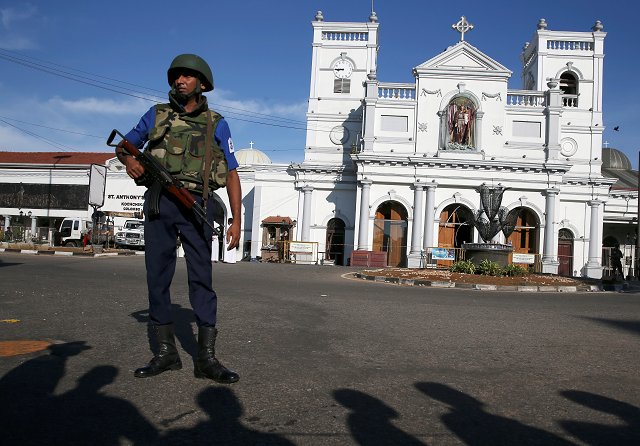 A security officer stands in front of St Anthony's shrine in Colombo. PHOTO: REUTERS
A security officer stands in front of St Anthony's shrine in Colombo. PHOTO: REUTERSA British mother and son eating breakfast at the luxury Shangri-La hotel were among those killed, Britain’s The Telegraph newspaper reported.
One Australian survivor, identified only as Sam, told Australia’s 3AW radio the hotel was a scene of “absolute carnage”.
He said he and a travel partner were also having breakfast at the Shangri-La when two blasts went off. He said he had seen two men wearing backpacks seconds before the blasts.
“There were people screaming and dead bodies all around,” he said. “Kids crying, kids on the ground, I don’t know if they were dead or not, just crazy.”
London says Britons among those killed in Sri Lanka attacks
There were similar scenes of carnage at two churches in or near Colombo, and a third church in the northeast town of Batticaloa, where worshippers had gathered for Easter Sunday services. Pictures from the scene showed bodies on the ground and blood-spattered pews and statues.
Dozens were killed in one of the blasts at the Gothic-style St. Sebastian church in Katuwapitiya, north of Colombo. Police said they suspected that blast was a suicide attack.
Three police officers were also killed when security forces raided a house in Colombo several hours after the attacks.Police reported an explosion at the house.






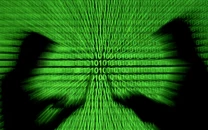












COMMENTS
Comments are moderated and generally will be posted if they are on-topic and not abusive.
For more information, please see our Comments FAQ